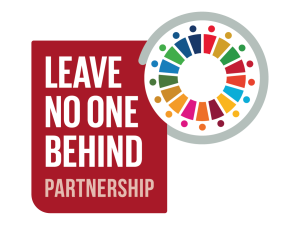- Care Malawi
- Centre for Social Accountability & Transparency (CSAT)
- Do for Children
- Malawi Network of Older Person’s Organisations (MANEPO)
- National Planning Commission of Malawi
- Plan International Malawi
The LNOB Malawi coalition with their first LNOB project worked with stakeholders to implement the Making Voices of Marginalised Groups Heard and Counted in Malawi in six districts: Mzimba, Kasungu, Mangochi, Rumphi, Neno and Nkhotakota. It aimed to demand accountability, promote better decision-making, and influence policy outcomes for youth, women and marginalised groups. It focused on generating gender and age-disaggregated data and building capacity within decision-making structures, the media and civil society organisations.
The project also aimed to strengthen the capacity of government institutions to deliver gender- and youth-sensitive social protection services, in line with SDG 10. It tracked the participation and inclusion of youth and women in the Affordable Inputs Programme (AIP) and Social Cash Transfer Programmes (SCTP), which are critical to Malawi’s SDG progress. By using citizen-generated data (CGD) and working with the media, the project empowered marginalised groups to hold governments accountable and drive social and political change.
Through a data-driven approach, the project increased the participation and empowerment of women and youth at the district level. It facilitated collaboration between civil society actors, information intermediaries and local authorities to improve data translation and use, ensuring transparency and accountability in the SCTP and AIP programmes. In addition, project-generated data contributed to the Citizen Data Hub, filling data gaps for target districts and enabling comparative analysis with other socio-economic inclusion data, thus contributing to the public good.
Here are the key achievements and impacts:
– Strengthening CSO capacity: Grassroots CSOs received training and orientation on CGD collection and meaningful SDG monitoring. This initiative empowered them to actively participate in SDG-related activities and advocate for the inclusion of marginalised communities.
– Monitoring citizens’ knowledge and benefits: The coalition tracked citizens’ understanding of the SDGs and assessed how social protection programmes, such as SCTP and AIP, benefit marginalised groups. By identifying knowledge gaps and service delivery issues, we highlighted the need for targeted interventions.
– Methodology: Despite operational challenges that limited the scope, the study mapped participatory spaces for marginalised groups, identified knowledge gaps and assessed programme impacts. Despite the limitations, the study provided valuable insights into the effectiveness of social protection programmes.
– Coalition engagement: On behalf of the Leave No One Behind Malawi Coalition, the project facilitated discussions with stakeholders, including government ministries and service providers. These discussions paved the way for policy reforms and programme improvements.
– The study highlighted key issues for marginalised groups and attracted the interest of stakeholders such as the National Statistical Office (NSO), UNICEF and the EU. Efforts to ensure meaningful participation and inclusion in governance structures continue.
– Capacity building initiatives and leadership training aim to increase the participation of youth, women, and vulnerable groups in governance structures. However, further advocacy is needed to improve representation.
Going forward, the coalition will use the CGD findings to inform policy and planning, with a focus on making services more inclusive. Addressing gaps in governance structures and improving access to social protection programmes will remain key priorities, contributing to poverty reduction and the achievement of the SDGs in Malawi.
Pilot Project Country Publications




 Our Target SDGS in Malawi
Our Target SDGS in Malawi





